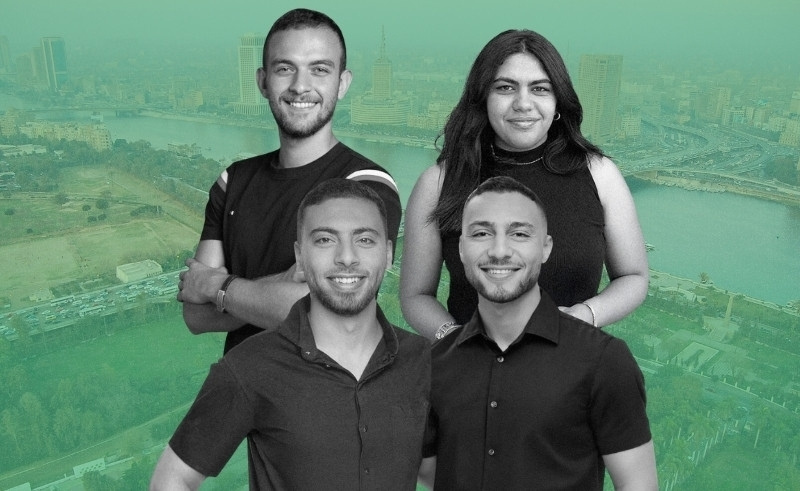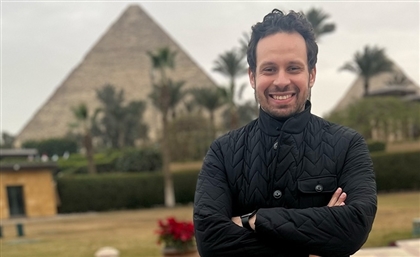How Three Student Startups Graduated Into the MENA Marketplace
Youth, Tutoruu and Freestore reflect on the growing impact of student-led startups in Egypt’s evolving entrepreneurial ecosystem.

Egypt’s entrepreneurial landscape is rapidly expanding, and students are playing an increasingly influential role in shaping its future. With the number of startups in the country multiplying fivefold since 2020, young founders are proving that innovation and business acumen aren’t reserved for industry veterans.
Among those making an impact are Youth, Tutoruu and Freestore, three student-led ventures that have moved beyond university projects to become market-ready businesses. From streamlining student discounts to redefining ad-tech, we sat down with the founders of these startups to talk about how young entrepreneurs are tackling real-world challenges with fresh perspectives…
Youth: Empowering Students With Discounts
Launched in 2024, Youth is Egypt’s first student discount app, centralising deals from various brands in one digital platform. With 10,000 downloads and 8,000 active users, it’s already proving to be a valuable tool for students looking for affordable goods and services.
CEO Mariam Elleithy identified a gap in the market when she realised that no platform consolidated student discounts in one place. “I realised there’s no platform in Egypt that supports students together in one place,” Elleithy explains. The result was Youth, a solution that connects students to brands while offering them tangible savings.
Juggling a startup alongside university life wasn’t easy, but a breakthrough moment came when Youth won $1 million in funding through the Gen-Z entrepreneurship show. “That’s when we knew we had something that could last beyond our time as students,” Elleithy says.
Tutoruu: Helping Students Succeed
For the founders of Tutoruu, an EdTech platform that connects university students with tutors, the idea was born from first-hand experience. Struggling to find quality academic support themselves, CEO Seif Kassem, COO Mariam Amer, CMO Mohamed Elmestekawy, and CTO Youssef Abdelhamid built a platform to make tutoring more accessible and affordable.
“For us,” Amer says, “seeing students—including ourselves—struggling to find the help they need throughout the semester was all the incentive we needed to start.”
The startup took a data-driven approach to define its market, conducting over 100 customer interviews and refining its model through global startup incubators. That strategy paid off—Tutoruu was featured in Forbes Middle East’s 30 Under 30, marking it as a rising player in the region’s education sector.
Freestore: Revolutionising Ad-Tech
Unlike Youth and Tutoruu, Freestore isn’t focused on student life—it’s reinventing how brands engage with consumers. Founded by brothers Ziad and Omar Elkammah, Freestore introduces a "phygital" advertising model, combining digital and physical experiences by rewarding users with free gifts in exchange for their attention.
The idea was simple: redirect massive ad spending into tangible benefits for consumers while ensuring measurable ROI for brands. “We wanted to channel massive Ad spend into rewards that benefit consumers while ensuring ROI for brands,” says Ziad El Kammah.
Freestore’s model has already helped brands across the MENA region connect with consumers in more interactive and rewarding ways, positioning the startup as a pioneer in ad-tech solutions.
The Challenges & Triumphs of Student Entrepreneurs
Running a startup while still in school presents its own set of hurdles. “I was constantly juggling classes, meetings, and trying to maintain a social life,” says Elleithy of Youth. “It was crazy!” she adds with a laugh.
For Tutoruu’s team, stepping into the startup ecosystem meant facing seasoned investors and venture capitalists, which was initially daunting. “Our exposure to older and more knowledgeable investors was intimidating at first,” says Kassem, “but it pushed us to refine our strategy and work even harder.”
For Freestore, the challenge was proving their model to large corporations. “We had to work hard to match expectations and secure partnerships,” says El Kammah, emphasising the need to demonstrate value before earning trust in the market.
Each startup found its own approach to growth. Youth fine-tuned its product by engaging directly with students, Tutoruu leveraged global incubators and data-driven customer research with over 100 interviews, while Freestore identified and connected two key groups: brands seeking better engagement and consumers looking for incentives.
The Future of Student Startups in Egypt
The rise of student entrepreneurs in Egypt is a reflection of the country’s evolving startup landscape. With a supportive ecosystem, growing access to funding, and a willingness to take risks, the next generation of founders is shaping industries even before they graduate.
- Previous Article Hub71 Launches Vertical for Life Sciences in Abu Dhabi






















